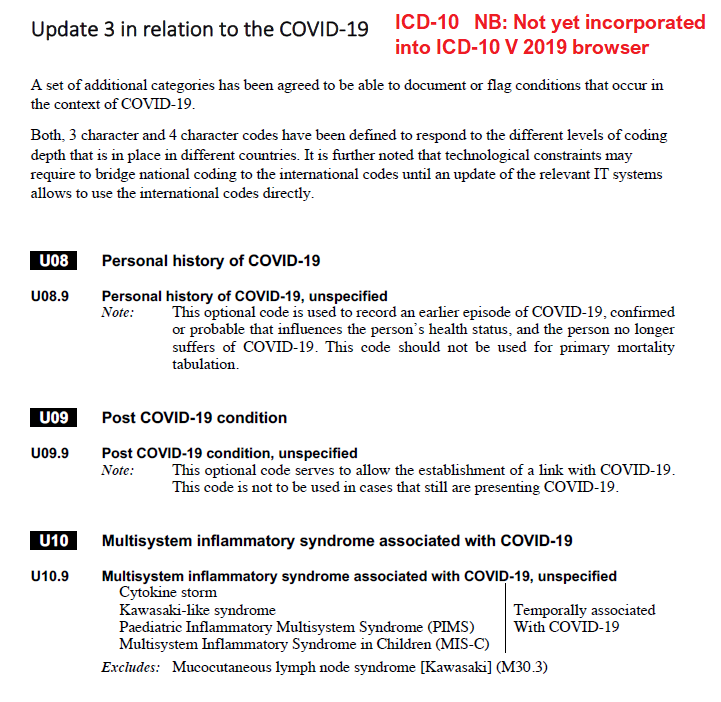the BMJ opinion
https://blogs.bmj.com/bmj/2020/10/01/why-we-need-to-keep-using-the-patient-made-term-long-covid/
Why we need to keep using the patient made term “Long Covid”
October 1, 2020
“Long Covid” was
first used by Elisa Perego as a Twitter hashtag in May to describe her own experience of a multiphasic, cyclical condition that differed in time course and symptomatology from the bi-phasic pathway discussed in
early scientific papers, which focused on hospitalized patients. Just three months later, following intense advocacy by patients across the world, this patient made term has been taken up by powerful actors, including the
World Health Organization.* Politicians have used it too: Matt Hancock, UK health secretary, recently explained to a parliamentary committee that “
the impact of long covid can be really debilitating for a long period of time.”
“Long Covid” has clearly struck a chord. However, it’s not the only term being used to describe persistent symptoms: we’ve also seen
post-acute covid-19,
postcovid syndrome, and
chronic covid-19. As patients and professionals, we see “Long Covid” as better able to navigate the socio-political, as well as clinical and public health challenges, posed by the pandemic in the coming months, for a number of reasons:
1 Long Covid acknowledges that cause and disease course are as yet unknown
Long Covid emphasizes that the cause of long-term symptoms and the point at which the acute phase of covid-19 ends remain unknown. Its strength is in its non-specificity. It reflects humility by acknowledging uncertainty. Long Covid may well include
several conditions that have more than one aetiology, even in one patient. It’s too early to assume that after 2–3 weeks, all patients are “post-viral.” Potential for viral persistence requires research.
(...)
Elisa Perego
is Honorary Research Associate at University College London. Her current research focuses on health and disability in present and past societies. @elisaperego78
Felicity Callard
is a Professor of Human Geography at the University of Glasgow whose research focuses on health, patient/service user experiences, and medical humanities. @felicitycallard
Laurie Stras
is Research Professor of Music at the University of Huddersfield, and Professor Emerita of Music at the University of Southampton.
@LaurieStras
Barbara Melville-Jóhannesson runs a linguistics and artificial intelligence project, funded by Creative Informatics at the University of Edinburgh.
@keyeri
Rachel Pope
is Senior Lecturer in European Prehistory at the University of Liverpool, her research focuses on archaeological data analysis. @preshitorian
Nisreen A Alwan
is an Associate Professor in Public Health at the University of Southampton and an Honorary Consultant of Public Health at University Hospital Southampton NHS Foundation Trust. @Dr2NisreenAlwan
#LongCovid #CountLongCovid
Competing interests: All authors have experienced prolonged covid-19 symptoms, and have participated in various kinds of Long Covid advocacy.
Full blog
Related blog:
https://blogs.bmj.com/bmj/2020/09/0...ge-about-long-covid-and-we-will-act-says-who/
We have heard your message about long covid and we will act, says WHO
September 3, 2020
---------------------------------------------------------------------------------
*Ed: No code for the term "Long Covid" has been created by the WHO for addition as an emergency code to ICD-10, or for addition to ICD-11.
Three requests for creation of new Concept codes for addition the the UK Edition of SNOMED CT have been submitted and are pending review and processing.













